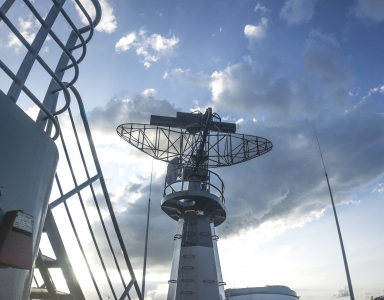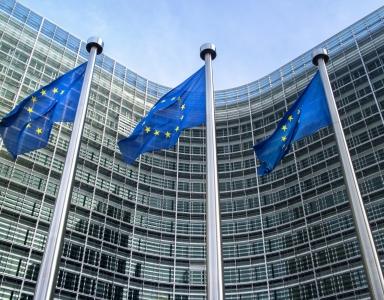More information on the European Defence Fund Work Programme 2022
In an earlier article, we discussed some of the highlights of the new Work Programme for the European Defence Fund (EDF). Continue to learn more about the programme and its upcoming calls for proposals.
Calls for proposals of the European Defence Fund 2022
As part of the 2022 work programme, calls for proposals target 33 research and development topics under the categories of actions. This includes 4 calls to support research projects, 2 to support development actions, 1 for establishing a framework partnership (FPA) and 1 for a coordination and support action (support to NFP). Each category of actions is addressed in one or more call(s) for proposals. Next to this, each topic targets one or more activities in accordance with the EDF regulation.
Contact us for advice or support
Or call us directly: 088 495 20 00
A given topic can focus more specifically on one or more mandatory activities but can allow additional optional activities that would lead to or result from these activities (upstream or downstream activities). The table below indicates which activities are eligible for research actions and for development actions:
| Type of activities | Short name | Research action | Development action |
| Activities that aim to create, underpin and improve knowledge, products and technologies, including disruptive technologies for defence, which can achieve significant effects in the area of defence | Generating knowledge | Eligible | Not eligible |
| Activities that aim to increase interoperability and resilience, including secured production and exchange of data, to master critical defence technologies, to strengthen the security of supply or to enable the effective exploitation of results for defence products and technologies | Integrating knowledge | Eligible | Eligible |
| Studies, such as feasibility studies to explore the feasibility of new or upgraded products, technologies, processes, services and solution | Studies | Eligible | Èligible |
| The design of a defence product, tangible or intangible component or technology as well as the definition of the technical specifications on which such a design as been developed, including any partial tests for risk reduction in an industrial or representative environment | Design | Eligible | Eligible |
| The system prototyping of a defence product, tangible or intangible component or technology | System prototyping | Not eligible | Eligible |
| The testing of a defence product, tangible or intangible component or technology | Testing | Not eligible | Eligible |
| The qualification of a defence product, tangible or intangible component or technology | Qualification | Not eligible | Eligible |
| The certification of a defence product, tangible or intangible component or technology | Certification | Not eligible | Eligible |
| The development of technologies or assets increating efficiency across the life cycle of defence products and technologies | Increasing efficiency | Not eligible | Eligible |
Duration of your project
The duration of proposed projects should be between 12 and 48 months. However, proposed projects exceeding this duration can be submitted but should be justified and substantiated against the content and objectives of the proposed project. The project starting date and duration will be fixed in the Grant Agreement. Normally the starting date will be after grant signature. Retroactive application can be granted exceptionally for duly justified reasons — but never earlier than the proposal submission date.
More information on the European Defence Fund
The evaluation procedure of the European Defence Fund 2022
The European Commission evaluates all proposals by performing the following assessments:
- Proposals will first be checked for formal requirements: determining if the received proposals meet the admissibility conditions and eligibility criteria (sections 5 and 6 of the call documents);
- Proposals found admissible and eligible will be evaluated against the operational capacity and award criteria (sections 7 and 9 of the call documents) and then ranked according to their scores.
For proposals with the same score (within a budget envelope) a priority order will be determined according to the following approach: Successively for every group of ex aequo proposals, starting with the highest scored group, and continuing in descending order:
- Proposals will be prioritised according to the scores they have been awarded for the criterion ‘Excellence and potential of disruption’. When these scores are equal, priority will be based on scores for the criterion ‘Innovation and technological development’. When these scores are equal, priority will be based on scores for the criterion ‘Competitiveness. When these scores are equal, priority will be based on scores for the criterion ‘Creation of new cross-border cooperation’;
- If necessary, any further prioritisation will be based on the number of Member States or EDF associated countries, in which applicants involved in the proposal are established.
Indicative timeline from application submission to signing grant agreements
If applications are submitted in time, applicants may receive the results of the evaluation procedure as early as seven months from the final date for submission. Grant agreements may be signed as early as one month from the date successful applicants are informed.
In need of advice or support?
Feel free to contact us! Our specialists will be pleased to discuss the opportunities of the European Defence Fund 2022 for your project. Schedule a one-on-one meeting with one of our specialists.
Schedule a one-on-one meeting
Or call us directly: 088 495 20 00



